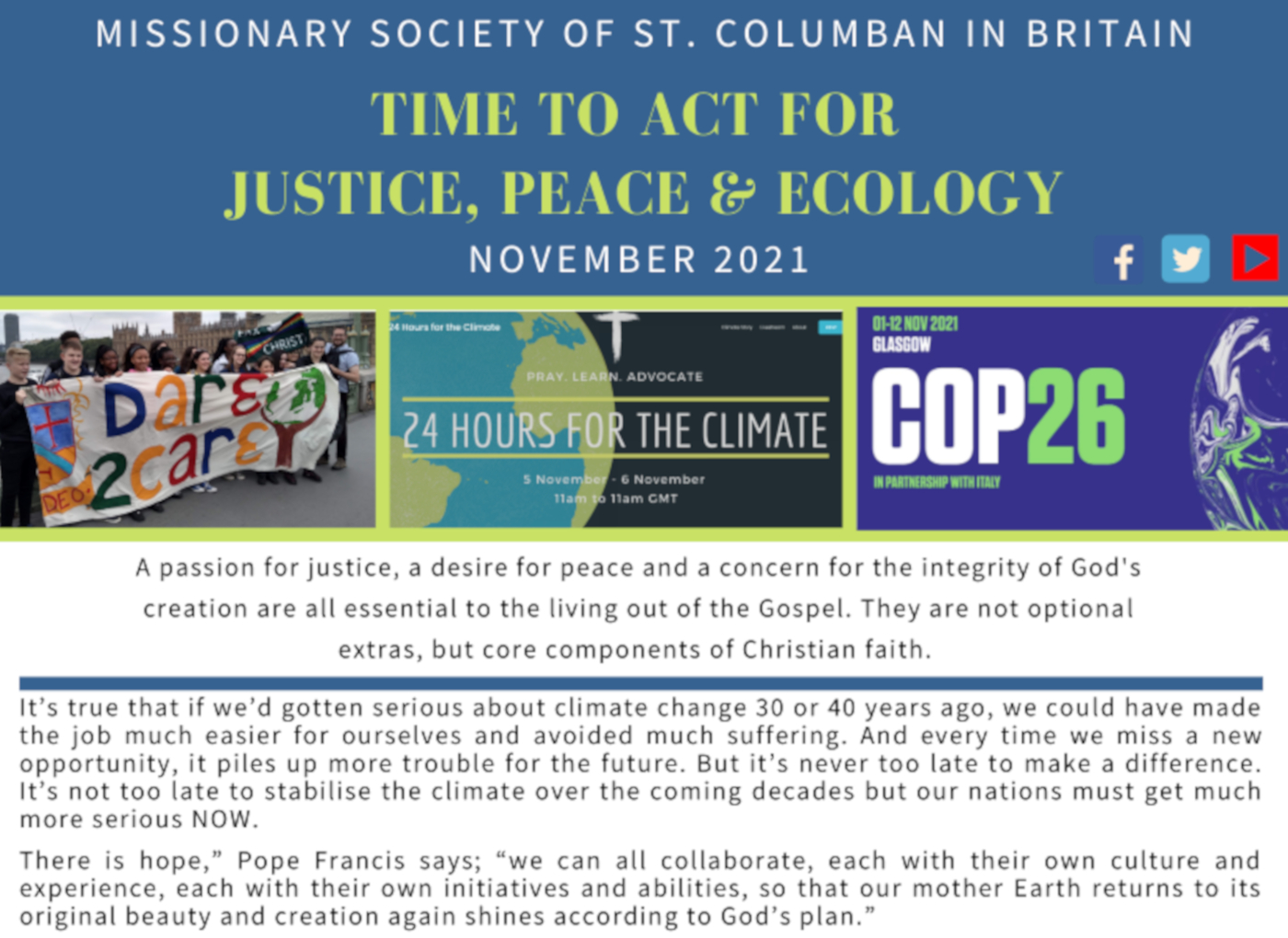There is widespread acceptance that the world is facing a climate crisis, caused by the burning of fossil fuels. The Christian response, although initially slow, has gained pace over the last decade and the importance of faith communities in raising awareness and encouraging action was recognised by 2015, when COP21 – the annual UN Summit on Climate Change – took place in Paris and the Pope’s influential environmental encyclical, Laudato Si’, was released earlier the same year.
As with the pandemic still claiming lives around the world, only global collaboration can ultimately solve the climate crisis. The UN Intergovernmental Panel on Climate Change (IPCC) has told us bluntly that the consequences of not limiting global warming to 1.5 degrees Celsius by 2030 will be severe. One of the effects is the increase in famines due to more irregular rainfall and harvest failure. As Catholics we cannot remain impassive before this tragedy. The Laudato Si Movement is encouraging us to raise our voices alongside Pope Francis. The “Healthy Planet, Healthy People” petition has already been signed by hundreds of thousands of people across five continents.
Over the last decade it has been acknowledged that if runaway climate change is to be avoided then 80% or more of known fossil fuel reserves must remain in the ground and no new reserves should be exploited. The business models of companies who continue exploration for oil or gas are therefore not compatible with care for the Earth, and Christians have joined calls for institutions to withdraw their investments from these companies and invest instead in clean energy technologies. Faith organisations have led the way on divestment and this is one of the most significant Christian responses to climate change of the last decade. Columbans have divested in Britain and internationally.
Changes made now in tackling the climate crisis will also benefit those disadvantaged by poverty or lack of resources. One example would be the huge expansion in the use of solar power, which can now provide low-cost energy to communities in areas where sunshine is plentiful. But we must challenge the UK government’s half-hearted carbon-cutting efforts which aren’t setting a good example. We should scrap climate-wrecking projects like airport expansion and new roads; unleash local climate action by giving councils the money and powers they need; pay our fair share to help vulnerable countries – and stop funding oil and gas overseas; create hundreds of thousands of green jobs; insulate every home to cut emissions and end fuel poverty and double tree cover to support nature.
At the COP26 summit in Glasgow, countries will bring forward proper emission cutting targets for the first time. They’ll also have to show plans for how they’ll meet previously agreed goals. The UK government’s policies announced this year aren’t enough to get the UK on track to its 2030 climate target, so a huge amount of extra action is needed now to meet that goal. This year’s summit is all about action, not just warm words. These summits are a rare opportunity to focus the world’s attention on the climate crisis. They give the platform to people that are facing the worst effects of climate change but did almost nothing to cause it. The Columbans will be represented there.
Deforestation, biodiversity loss and climate change all make pandemics more likely but, as the value of scientific expertise has now been recognised by politicians, perhaps science can be used to design economies that will mitigate these threats. The Churches, as recommended in Laudato Si’, increasingly work alongside other faith communities, science and technology, business and politics, to seek solutions and new ways of moving towards a sustainable future for all life on Earth.
It’s true that if we’d gotten serious about climate change 30 or 40 years ago, we could have made the job much easier for ourselves and avoided much suffering. And every time we miss a new opportunity, it piles up more trouble for the future. But it’s never too late to make a difference. It’s not too late to stabilise the climate over the coming decades but our nations must get much more serious NOW.

